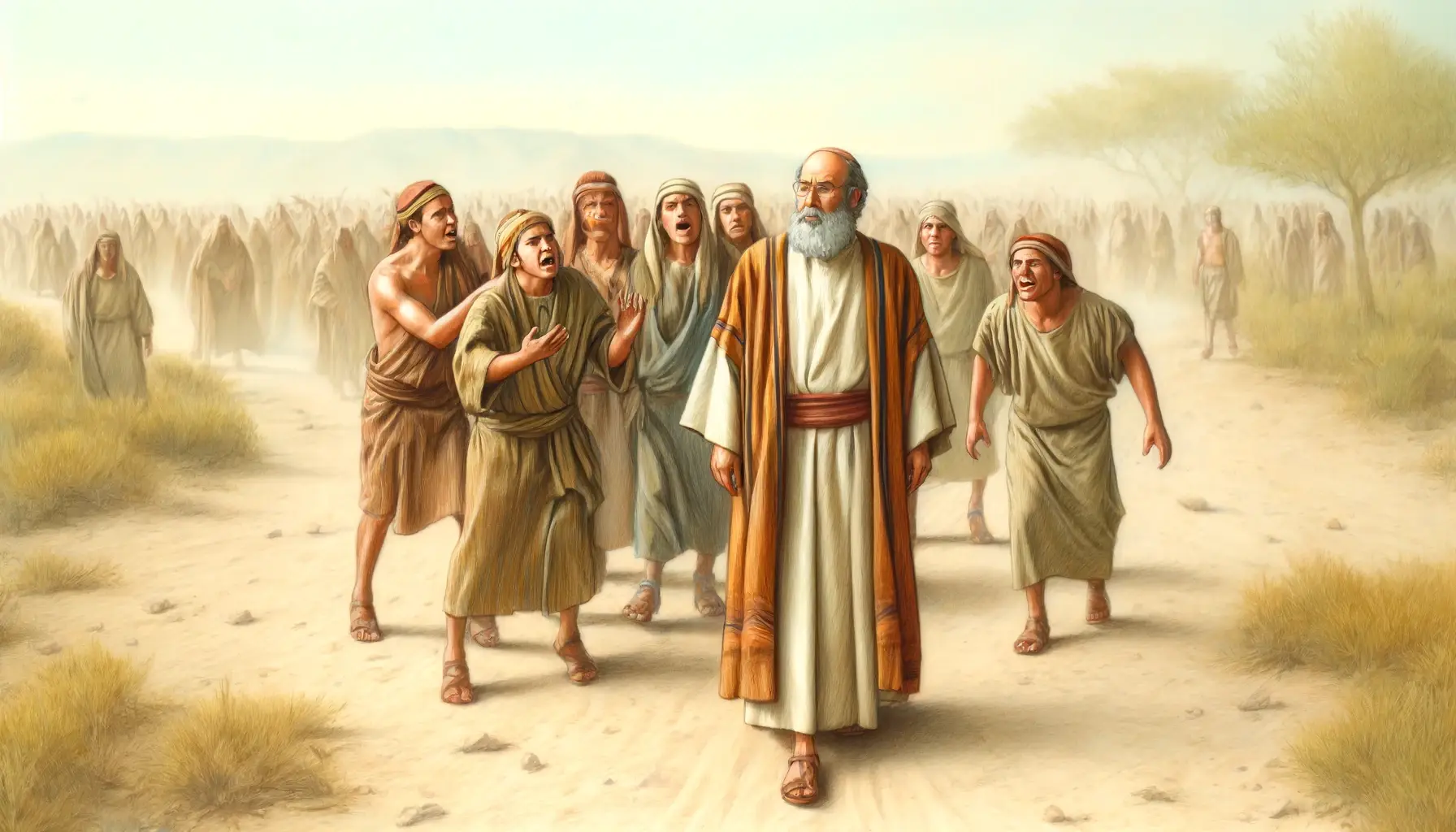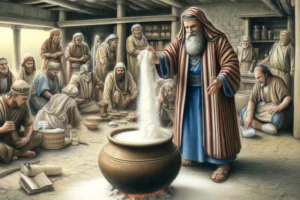
Elisha and the Mocking Youths
The biblical story of Elisha and the mocking youths in 2 Kings 2:23-24 is a dramatic narrative illustrating the sanctity of prophetic authority and the consequences of disrespect. Here are some quick facts about this event:
- Location: The incident occurs as Elisha is going up from Bethel to Bethel, a significant town in the biblical narratives.
- Mockery: A group of young boys come out of the town and mock Elisha, jeering at him, “Go up, you baldhead! Go up, you baldhead!” referring to his baldness and possibly mocking his ascent into the prophetic role following Elijah’s miraculous ascension.
- Divine Retribution: Elisha curses the youths in the name of the Lord, and two bears come out of the woods and maul 42 of them, showcasing a severe punishment for their mockery.
- Prophetic Authority: This story emphasizes the sacredness of the prophetic office and serves as a stern warning against the mockery or disrespect of God’s anointed messengers.
- Theological Debate: The passage has been the subject of considerable theological debate, particularly concerning the moral and ethical implications of divine judgment and the proportionality of the punishment.
The narrative of Elisha and the mocking youths in 2 Kings 2:23-24 is one of the more challenging and controversial stories within the Elisha cycle. This episode, involving a severe divine punishment for what might seem like minor transgressions, provides profound insights into the nature of prophetic authority and divine justice. Here’s a comprehensive analysis:
Context and Background
The event occurs as Elisha travels from Jericho to Bethel, two significant locations in Israel’s religious landscape. Bethel was a center of idol worship during Elisha’s time, which may contribute to the tension in the narrative. Elisha, having just taken over the prophetic mantle from Elijah, was establishing his authority as a prophet of Yahweh.
Theological Themes
Sanctity of Prophetic Authority: The youths’ mockery of Elisha (“Go up, you baldhead!”) not only insults him personally but also challenges his prophetic office. The phrase “Go up” could be seen as a derisive reference to Elijah’s recent miraculous ascension to heaven, suggesting a taunt for Elisha to do the same.
Divine Retribution: Elisha’s cursing of the youths in the name of the Lord, followed by the bears’ mauling of 42 of them, starkly illustrates the concept of divine retribution. This severe punishment underscores the seriousness with which offenses against God’s prophets were regarded, reflecting the Old Testament principle that prophecy and the prophetic office were directly under God’s protection.
Moral and Ethical Questions: This story raises complex questions about the nature of justice and punishment. The harshness of the penalty for what might seem like childish mockery has been a point of contention among theologians and scholars. It challenges readers to consider the context of prophetic insult in a highly religious society.
Literary Analysis
Characterization: Elisha’s immediate reaction to curse the youths might seem harsh, but it conveys the intense reverence expected for God’s anointed. The swift and severe nature of the punishment further emphasizes the story’s role in illustrating the dangers of disrespecting divine authority.
Symbolism: The use of bears as agents of divine punishment is symbolic in biblical literature, representing the untamed and dangerous aspects of nature which, like divine justice, can be unexpectedly swift and severe.
Historical and Cultural Context
In the historical context of ancient Israel, prophets were often the targets of ridicule and hostility, especially in places like Bethel where the official religious practices included idol worship. The narrative thus serves as a warning to Israel about the consequences of opposing God’s messengers.
Conclusion
The story of Elisha and the mocking youths is a complex narrative that explores themes of respect, authority, and divine protection. It serves multiple functions: legitimizing Elisha’s prophetic role, reinforcing the seriousness of prophetic office, and illustrating the broader theological principle that God defends His representatives on earth. This narrative invites readers to reflect on the balance of justice and mercy in divine actions and the profound respect required for God’s anointed ones in a religiously charged environment.
Leave A Reply
You must be logged in to post a comment.




1 Comment